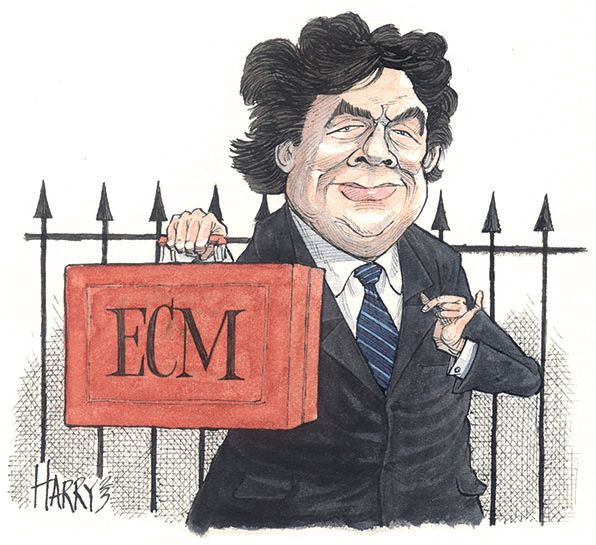Nigel Lawson, an accidental pioneer of global ECM
Nigel Lawson, who died on April 3 aged 91, was a significant figure for the world’s equity capital markets.
As UK chancellor of the exchequer from 1983 to 1989, Lawson oversaw the deregulation of the City of London in the 1980s and the Big Bang that he masterminded is regularly cited today in relation to efforts to breathe new life into the London Stock Exchange.
The Big Bang shaped the modern City just as the privatisation programme that Lawson drove in the 1980s created international ECM as we know it and pioneered practices that remain integral to the IPO market worldwide.
Eric Dobkin, the founder of the ECM group at Goldman Sachs, wrote in IFR’s 25th anniversary issue in 1999 that he could not reflect on 25 years of international ECM as it had only come about in the mid-1980s thanks to the UK government.
“Until then, there had been no really global transactions. Deals were generally small, and the issuer had no interest in the ultimate shareholder base. Ford's IPO in 1956 was a rare large offering, but those shares were marketed exclusively in the States. There was certainly no technology to link markets.
“So it was British Telecom (in 1984) and British Gas (1986) that sounded the awakening call. Combining elements from different market cultures, the UK government invented the ECM technology with which we are now familiar,” Dobkin said.
Many in the UK remember British Gas by the inescapable “Tell Sid!” advertising campaign and shares sold on the cheap, yet that privatisation – and the many others like it in the UK – were pushing boundaries.
Through such deals, global coordinators were born, as bankers sought ways to balance the dynamics of various countries and present an equity story for a global audience. The transition from local to regional and then global markets continued through the 1980s and 1990s with privatisations around the world playing a major part.
“The late 1980s privatisations were not only pivotal in developing and deepening the UK equity markets, but also those of many Continental European bourses, whose landmark offerings emulated or built upon the innovations from Lawson’s privatisation programme,” said former senior capital markets banker Craig Coben.
Privatisation IPOs remain a crucial source of activity today, with Uzbekistan’s plans to list Uzbekneftegaz the latest to be used to encourage widespread share ownership among the population (See Equities section).
Tell Sid!
Lawson wrote a paper for the Centre for Policy Studies in 1980, when he was the number two in the Treasury, that spelt out the privatisation plans.
“Throughout this exercise we are anxious to see the widest possible spread of private shareholding – so that the so-called public sector industries really do belong to the public – including in particular employee shareholding,” he wrote.
Incentives included partly paid shares and discounts – and massive advertising efforts, such as the British Gas campaign that encouraged participation with the line “if you see Sid, tell him” how easy it is to buy shares.
“The UK privatisation programme pioneered the use of retail incentives. Other countries followed suit, although they weren’t quite as generous. This helped democratise share ownership,” said Coben.
Black Monday
It wasn’t all plain sailing, though, with the then largest share sale of all time – the £7.2bn privatisation of British Petroleum – in the market on Black Monday when equity markets crashed around the world in October 1987 (a story told in an episode of IFR’s The Syndicate podcast).
Banks that had underwritten the deal wanted it to be cancelled as they faced large losses due to the sharp drop in BP shares. The oil company also wanted the deal to be pulled, but Lawson held firm – in part because he had already factored the proceeds into his latest budget.
Demand for just 71m of the more than 2bn shares on offer made Lawson pause. He ensured the deal proceeded, but he provided a backstop for the partly paid stock that triggered a recovery in BP's share price.
Richard Gnodde, the long-time CEO of Goldman Sachs International, was an analyst at the US bank back then and recalled in 2013 that it was his “first lesson in risk management”.
Arguably, it was the rest of the world that benefited most from Lawson’s efforts. The UK secured less value than it might have for its industrial giants – although Lawson was driven as much by an effort to create popular capitalism, as getting value for money – and had soon run out of saleable assets. But others learned the lessons and improved upon the processes.
“The rest of Europe and much of Asia were able to learn from the trial and error of the UK privatisation programme. It is difficult to understate the global influence of the wave of offerings of previously state-owned companies under Lawson’s chancellorship,” said Coben.






